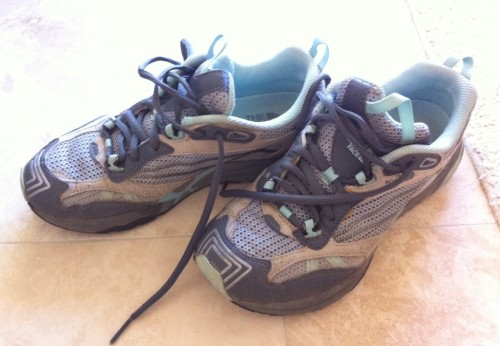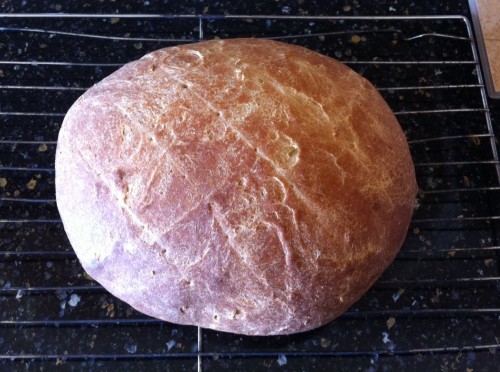Removing Barriers
As I am still in a state of transition, I have been coming across mini-projects to overcome places in my life that I have often found to be abhorrent, impossible, undesirable… just that I dislike or even “hate.” But truthfully, there is very little in this world that I hate (people, places, things, etc.). Hate is such a strong feeling.
Here are some of the things I’ve been tackling with the mindset that I don’t want barriers to get in my way to doing anything:
- RUNNING. Ironically, I was on the track team in high school. More as a way to keep in shape in the spring than for any love of running or track and field activities. I ran sprints and threw discus and did the lo
 ng jump. Whenever we had to do long distance running, a few laps around the track or around the school, I just about died. I hated it. I hated the feeling of being out of breath, of the pains in my side and lungs, of pushing myself beyond my comfort zone. Throughout my years in college and after, I’ve taken on running here and there, both indoors and outdoors, knowing that I didn’t really enjoy it; but it was a good, cheap way to stay in shape. In Boston, I started running a bit when I lived in the city, near the Charles River, but over the years, I stopped and had no regrets.
ng jump. Whenever we had to do long distance running, a few laps around the track or around the school, I just about died. I hated it. I hated the feeling of being out of breath, of the pains in my side and lungs, of pushing myself beyond my comfort zone. Throughout my years in college and after, I’ve taken on running here and there, both indoors and outdoors, knowing that I didn’t really enjoy it; but it was a good, cheap way to stay in shape. In Boston, I started running a bit when I lived in the city, near the Charles River, but over the years, I stopped and had no regrets.
I’ve started running again since I’ve been staying in Arizona where the weather is amenable to outdoors-running until it gets scorchingly hot. I’ve been inspired by some friends who’ve been running marathons and long-distance for fun. I’ve also been inspired by reading Haruki Murakami’s What I Talk about When I Talk about Running— a great read whether you’re a runner or not. And I’ve also been inspired to do some of this “overcoming barriers” work for myself. My solo-travels was about that to some extent. Getting my scuba-diving license was about that, too. Renting a moped in Pulau Pangkor without an international license and put-putting around that hilly island was about that, too. Overcoming fears, taking down walls, getting over things I’ve disliked or resisted.
Because I am totally undisciplined when it comes to running (strange because I can be so disciplined about other things in my life), I decided to take on the “couch to 5K” regimen to start. I’d heard good things about it from various sources. I also looked at the regimen, and it seemed manageable. I’m now on week four! And so far, so good.
It’s amazing the voices that come up in my head when running. At first, all seems good, and then as it starts to get challenging (I get winded; my legs feel strained; my lungs feel pressured), the voices telling me to take a break, to stop, to give up are so loud. It takes all my willpower to quell those voices and keep going. The work really begins when I want to stop (see my post about the practice of yoga and willpower— so relevant).
For now, I’m just trying to take each run for it is, another step. Trying not to think too far ahead or think about the past and my dislike of running. It’s definitely easier when the weather is nice as it has been in Arizona!
- MAKING BREAD. I brought back some sourdough starter from New Zealand from one of the families I stayed with, almost making a loaf of bread every week. I’ve always had an inexplicable fear of making bread. I think
 it’s a “I’m not worthy” type of complex. I was afraid of yeast and sourdough was another level beyond me. I’m not sure what the fear was based on– fear of killing the little bacteria, fear of doing something wrong and failing, I guess.
it’s a “I’m not worthy” type of complex. I was afraid of yeast and sourdough was another level beyond me. I’m not sure what the fear was based on– fear of killing the little bacteria, fear of doing something wrong and failing, I guess.
Once I revived the starter and got to making the bread, I’ve tried various recipes and methods. I’ve had to negotiate the dryness and elevation of Arizona and where my parents live (about 3500 ft above sea level). And I’ve been using different types of flour– wheat, spelt, rye, white, multigrain. And I’m finally getting the hang of it, after a bunch of loaves. The key is having enough honey to add sweetness to the bread. Also, kneading it enough to make sure everything is incorporated.
I haven’t eaten store bought bread in several months, and I’m loving it! All that goes into the bread is the starter, flour, water, salt, some oil (I’ve been using olive oil or flaxseed oil), and some salt. I even experimented with a loaf by adding fresh rosemary. Yum! There’s nothing like freshly baked bread. This is a denser type of bread than the usual yeast breads, but I’m loving the whole process!
Doing even these two seemingly simple things– running and making bread– has taught me so much about how much we blow our barriers and challenges out of proportion. They become monsters in our head, made up of irrational fears and dread. And when we take the steps to break down those walls, the shadows and darkness are dissipated to reveal a beauty before unseen.
There are more things I am afraid of, that I dread or dislike; but for now, I’ll go with these two activities. Nourishing my body in these two ways, building my willpower and my stamina.





